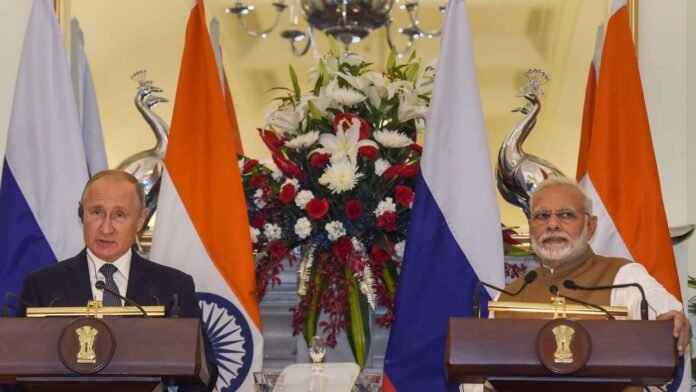India and Russia are poised to embark on a groundbreaking collaboration that could redefine the global nuclear energy landscape. Recent reports indicate that the two nations are engaged in discussions to develop what is being touted as the ‘world’s most powerful nuclear reactor.’ This ambitious endeavor underscores the deepening strategic partnership between India and Russia and has far-reaching implications for energy security, technological advancement, and international cooperation.
At the heart of this collaboration is the proposed construction of a new nuclear power plant featuring a cutting-edge reactor technology known as the ‘BrahMos,’ named after the Brahmaputra and Moskva rivers of India and Russia, respectively. The BrahMos reactor represents a fusion of Indian and Russian expertise, drawing upon India’s nuclear engineering prowess and Russia’s experience in reactor design and construction.
The significance of this project extends beyond its technical specifications. It symbolizes the convergence of mutual interests and shared objectives between India and Russia in the realm of nuclear energy. For India, grappling with the dual challenges of energy security and climate change, the development of advanced nuclear technology offers a pathway towards sustainable development and reduced reliance on fossil fuels.
Russia, for its part, sees the collaboration as an opportunity to bolster its position as a leading provider of nuclear technology and strengthen its strategic partnership with India, a key ally in the region. The joint development of the ‘world’s most powerful nuclear reactor’ not only showcases Russia’s technological prowess but also cements its role as a reliable partner in India’s quest for energy security.
The proposed reactor is expected to surpass existing designs in terms of power output, efficiency, and safety features. With a capacity far exceeding that of conventional nuclear reactors, the BrahMos reactor promises to revolutionize the global nuclear energy sector, offering a cleaner and more efficient alternative to traditional power sources.
Moreover, the collaboration between India and Russia holds significant geopolitical implications. As the world grapples with the challenges of climate change and energy transition, nuclear energy is increasingly being recognized as a crucial component of the solution. By pioneering the development of advanced reactor technology, India and Russia are positioning themselves at the forefront of this global shift towards cleaner and more sustainable energy sources.
The partnership between India and Russia also serves as a counterbalance to the dominance of other nuclear technology suppliers in the international market. With countries like China and the United States vying for influence in the global nuclear arena, the collaboration between India and Russia offers a strategic alternative, one that is based on mutual trust, shared interests, and technological innovation.
However, the proposed collaboration is not without its challenges. Nuclear energy projects are inherently complex and require substantial investments of time, resources, and expertise. Furthermore, concerns regarding safety, proliferation, and environmental impact must be addressed through rigorous regulatory oversight and international cooperation.
Nevertheless, the potential benefits of the India-Russia nuclear collaboration far outweigh the challenges. By pooling their respective strengths and resources, the two nations have the opportunity to develop a transformative technology that could reshape the global energy landscape for decades to come.
In addition to its implications for energy security and technological advancement, the India-Russia nuclear collaboration holds the promise of fostering deeper cooperation in other areas of mutual interest. From defense and space exploration to trade and cultural exchange, the partnership between India and Russia is multifaceted and enduring, rooted in a shared history of friendship and cooperation.
As discussions progress and plans are finalized, the world watches with anticipation as India and Russia take bold steps towards realizing their vision of developing the ‘world’s most powerful nuclear reactor.’ In an era defined by uncertainty and geopolitical competition, the collaboration between these two nations serves as a beacon of hope for a future built on cooperation, innovation, and shared prosperity.

